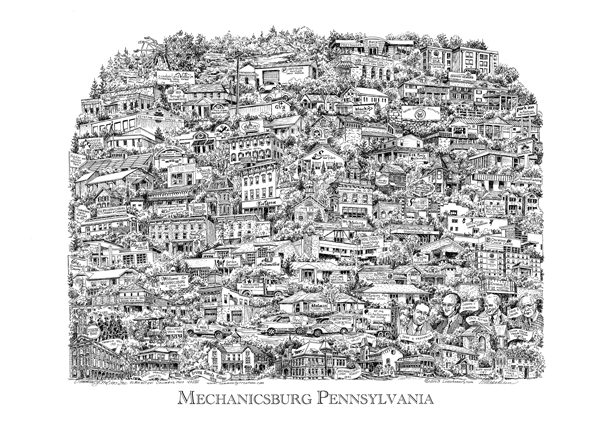Home / Mechanicsburg, Pennsylvania
Mechanicsburg, Pennsylvania
Named for a settlement of mechanics who made and repaired Conestoga wagons in the early 19th century, Mechanicsburg’s continued growth was also attributed to the Cumberland Valley Railroad (CVRR). Completing its line in 1837, Mechanicsburg was designated as a water station where workers could restock the locomotive’s wood and pump water. The train became the town’s link to the world of business and industry. Grain and feed companies, lumber yards and numerous factories were purposely built alongside the railroad tracks. Archives show that, at one time, there were twenty-five trains chugging through the town daily carrying travelers, coal, feathers, fruit, ice, mail and newspapers. During the American Civil War, the railroad was an invaluable method of transporting troops and supplies. Today, approximately six trains travel through Mechanicsburg each day.
On June 28, 1863, Confederate troops led by Brig. Gen. Albert G. Jenkins raided Mechanicsburg, and two days later, met with Union forces in the Skirmish of Sporting Hill, just east of town. It is known as the northern most engagement of the Civil War. Following the Skirmish of Sporting Hill, the Confederate forces retreated south into the little town of Gettysburg where the Battle of Gettysburg would be fought.
City Montage
Year drawn: 2012See more city montages
View pricing information
Contact the artist
